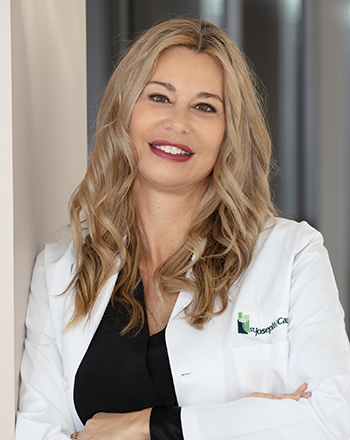Eight tips to reduce your risk of skin cancer
Cancer
May is skin cancer awareness month, but you should follow these best practices year round
We’re lucky where we live that we can spend a lot of time outdoors. And as the days get warmer and school is about to break for the summer, you may be likely to spend even more time outside.
While that’s all good and fun, the more exposure to the sun you have, your risk of developing skin cancer increases. That’s because exposure to ultraviolet (UV) rays is the biggest risk factor for skin cancer. UV rays come from the sun and from sunlamps and tanning beds.

“Much of the time, people look at their skin as an afterthought. If nothing seems wrong, they feel there is no reason to look closely,” says Dr. Jennifer Kirkman, physician at St. Joseph’s/Candler Primary Care in Richmond Hill. “But, keeping on top of your skin is so important, especially if you have a lot of sun exposure or a family history of skin cancer. I remind patients that we have to look at the spots where a problem might be hidden, such as between the toes, under skin folds or behind the hairline.”
Related Article: Do you do an annual skin exam?
May is skin cancer awareness month, but we encourage everyone – young and old – to practice good skin care year round, especially where we live. Here are eight tips to help reduce your risk of skin cancer:
- Limit your exposure to the sun between 10 a.m. to 4 p.m. This is when UV rays are strongest. Stay in the shade if you’re outside during this time.
- Apply a generous amount of sunscreen 15 to 30 minutes before you go outside. Use a water-resistant, broad-spectrum sunscreen with a SPF of at least 30; although Dr. Kirkman recommends SPF 50. Broad-spectrum means the sunscreen protects against both UVA and UVB rays. Apply it to all areas of your body that will be exposed to the sun. Don’t forget your feet, neck, ears and the top of your head. Dr. Kirkman also recommends looking for sunscreen that has zinc in it.
- Use a lip balm that has an SPF of at least 30.
- Reapply sunscreen every two hours, even on cloudy days. Also reapply every hour after swimming or sweating.
- Check the expiration date on your sunscreen to make sure it’s still effective. Don’t use sunscreen that has expired.
- Wear clothing that covers your body and shades your face. Wear a long-sleeved shirt, pants and a wide-brimmed hat. Hats should provide shade for the face, ears and back of the neck. For even better protection, wear clothing with ultraviolent protection factor (UPF).
- Wear sunglasses with a UV coating. The label should say 100 percent UVA/UVB protection. This will reduce the amount of UV rays that reach the eye, and it will protect your eyelids and the eye itself.
- Don’t use sunlamps or tanning beds.
It’s also important to remember to take care around reflective surfaces. Sand and water reflect UV rays, even under a beach umbrella. If you are on the beach, cover up and use sunscreen. Pavement also is good at reflecting UV rays.
Skin damage from UV rays early in life can lead to skin cancer later in life. So it’s important your children follow smart skin care at an early age. Make sure to apply a generous amount of sunscreen to children age six months and older and reapply it often. Also, limit their exposure to sun as much as possible, especially between those peak hours.
For babies younger than six months, try to avoid direct sunlight altogether. Yes, that may be hard where we live, so dress your baby in hats and lightweight clothing that covers most of the skin.
“Your skin is the largest organ in your body. It’s also the organ that is your first line of defense,” Dr. Kirkman says. “If your skin isn’t healthy, it’s likely your organs underneath aren’t going to be healthy either. So it’s important to pay attention to our largest organ.”